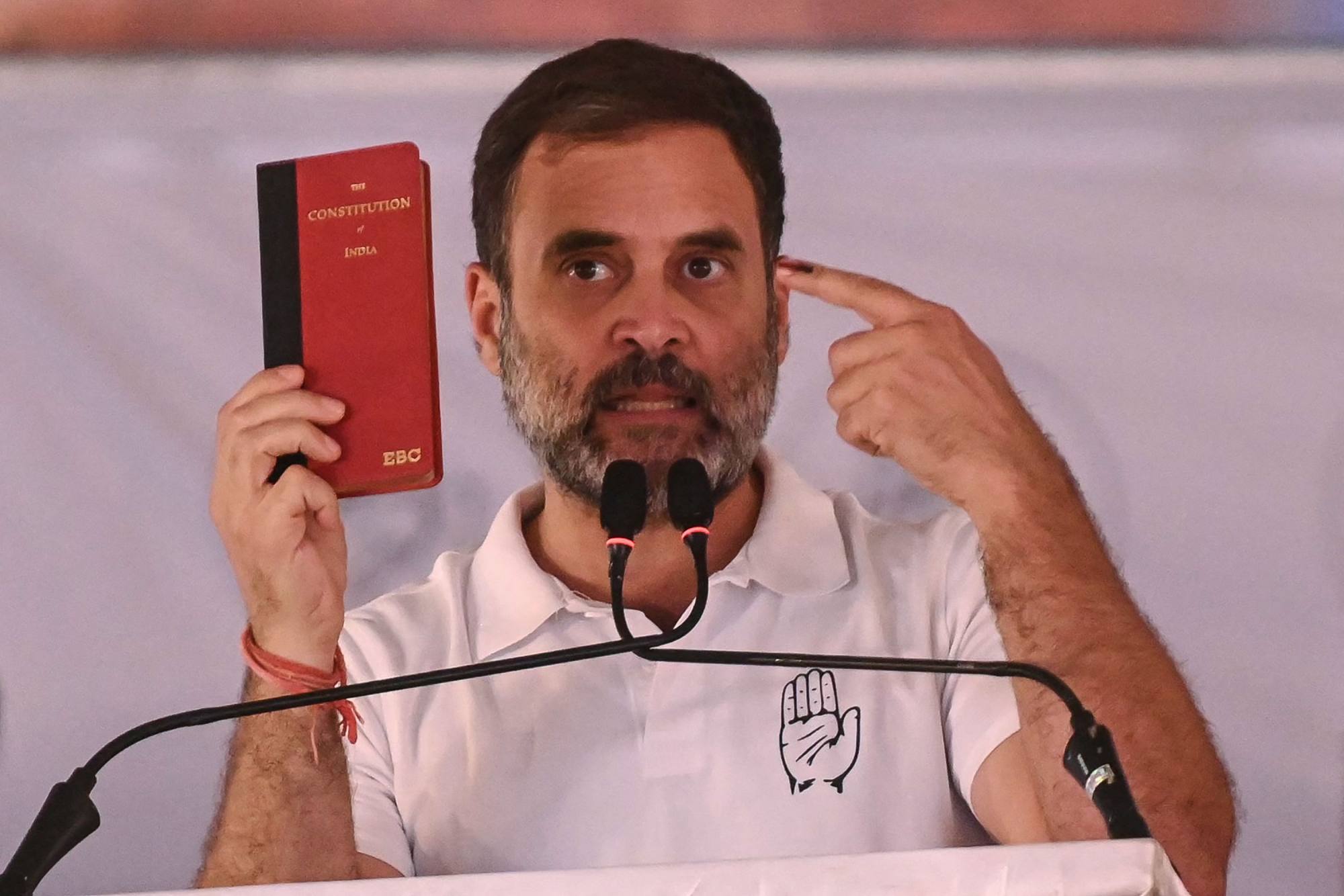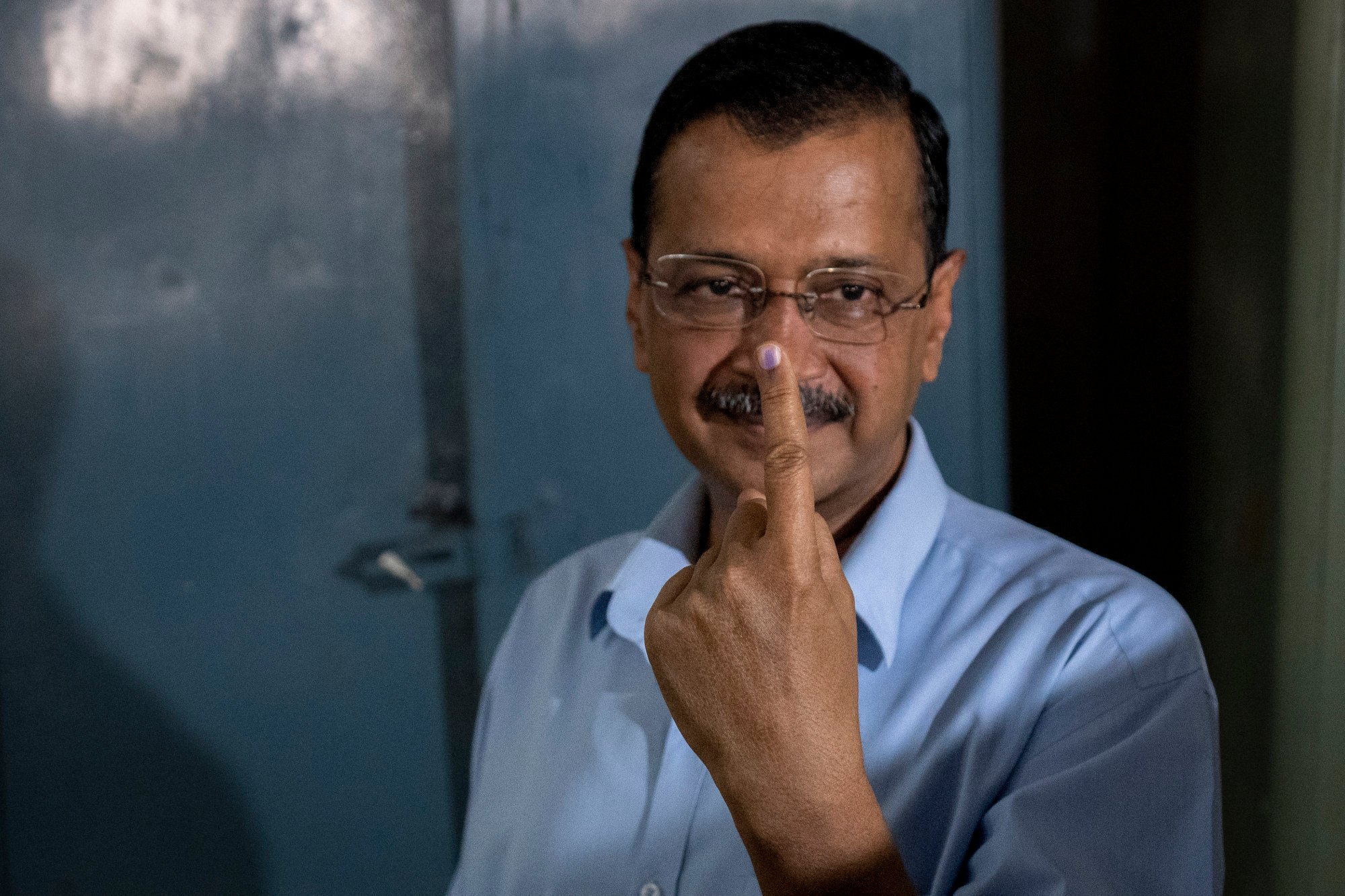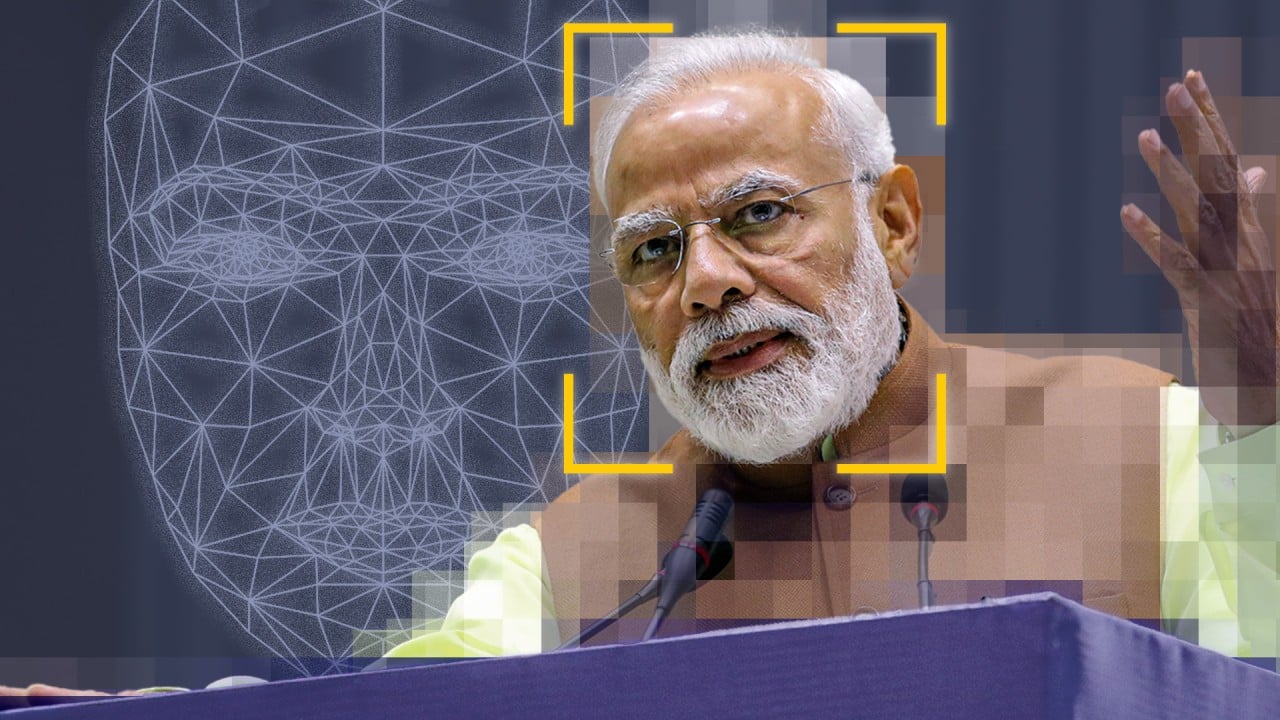
India election: opposition rivals turned allies hope to unseat Modi in Delhi
- Delhi is a high stakes battle between former bitter rivals, the Indian National Congress and the Aam Aadmi Party, now allied against Modi’s BJP
- The two key opposition parties are hailing their alliance and hope they can deny PM Narendra Modi’s and his party a third consecutive clean sweep of the region
Two key opposition parties are hailing their alliance in India’s capital, Delhi, and hoping they can deny Prime Minister Narendra Modi’s and his party a third consecutive clean sweep of the region in the ongoing elections.
Delhi, the administrative heart of the country, is a high stakes battle between former bitter rivals, the Indian National Congress and the Aam Aadmi Party, now allied against Modi’s Bharatiya Janata Party. The Congress party is contesting three of Delhi’s seven constituencies, with the AAP fielding candidates in the other four.
“In the symbol of the hand, there is a broom,” Rahul Gandhi, a top leader in the Congress party, told supporters at a political rally last week in Delhi, referring to the electoral symbols of the two parties.
Gandhi added that only by voting for the alliance can the country’s constitution be preserved. “All of us and our party workers have come together to protect the constitution,” he said.

The opposition has claimed that Modi’s calls for a 400-seat parliamentary super majority are signs that the BJP intends to amend the constitution and remove references to secularism and ditch the country’s expansive affirmative action programmes. Modi and the BJP have denied those charges and described them as scaremongering.
The opposition alliance recently received a shot in the arm after Arvind Kejriwal, the Delhi chief minister and leader of the Aam Aadmi Party, or the Common Man’s Party, was released on bail to allow him to campaign. He has been accused of corruption in a now defunct liquor license scheme, charges he’s denied and has said are politically motivated. A popular leader, Kejriwal stormed to power in Delhi after winning two consecutive legislative elections and shares control of the capital with the federal government.
In his campaign rallies, Kejriwal has tried to highlight bread and butter issues to supporters.
“People are so angry in this country with Modi. Prices have risen so much,” Kejriwal said at an event earlier this week, where he was campaigning on behalf of one of the Congress party’s three candidates. “Salaries are not increasing and people are losing their jobs. Our kids are sitting at home.”
To maintain their advantage, and inject some fresh momentum, the BJP has chosen to field fresh candidates in six out of the seven constituencies in Delhi. The party is hoping rallies and roadshows – being held early in the morning and at dusk to avoid scorching temperatures – from Modi and other star campaigners will boost the credentials of the new candidates.
One of those, Home Minister Amit Shah, widely seen as Modi’s right-hand man, arrived an hour late to his rally this week in Delhi to loud cheers from the party’s supporters. Shah accused the opposition of corruption, doing little to combat terrorism and not supporting the cause of building a temple dedicated to the Hindu god Ram, where a medieval mosque once stood. Modi consecrated the temple earlier this year in a lavish ceremony mostly boycotted by the opposition.
“If there is one person who can make the country grander, that is Narendra Modi,” said Shah at the rally. Pointing to the party’s candidate, he added that this election is not about voting the local parliamentarians into power but using them to “make Narendra Modi the prime minister.”

Amid the enthusiasm for Shah, there were also signs of frustration among the assembled crowd. Many of them, who said they had been bused in from semirural areas surrounding Delhi, spoke of water shortages, blackouts and dilapidated roads that past governments had failed to address.
“We want to flip the government, but we don’t know if change will come if we do that,” said Anju Kumari, who cleans houses for a living. She complained about long power cuts, which do not allow her or her children to sleep at a time when temperatures are hitting 45 degrees Celsius (113 degrees Fahrenheit). “We are standing at this rally to get roads, electricity and water.”
The weeks-long election cycle, which began on April 19 will end on June 1 with the seventh and final round of voting. Results will be announced on June 4.
In addition to Delhi, residents of the entire state of Haryana, which sends 10 members to parliament, cast their ballots on Saturday. The final constituency of Jammu and Kashmir, Anantnag-Rajouri also voted Saturday. Azamgarh, Bhadohi and Shrawasti in electorally significant Uttar Pradesh state are also voting. The average voter turnout in the sixth phase was about 61 per cent, according to provisional estimates by the Election Commission of India.


